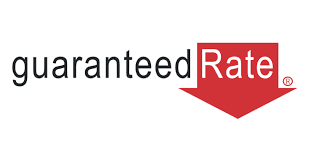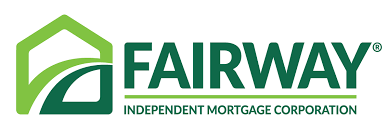Lender LendingTree rating and “best of” category Lender review


Refinance loansRead our review


VA loansRead our review


Jumbo loansRead our review


Online mortgage experienceRead our review


FHA loansRead our review


Home equity loansRead our review


Mortgage loan varietyRead our review
![]() Learn more about how we chose our list of the best mortgage lenders.
Learn more about how we chose our list of the best mortgage lenders.
As with most states, certain laws, costs and general practices apply to buying a home in Utah.
In Utah, buyers typically fill out a property disclosure form to avoid potential legal problems. The form asks sellers to address a long list of possible issues, such as asbestos, mold, defective plumbing and electrical systems, foundation concerns and pests.
Utah legally requires sellers to disclose whether a home has been used to either produce or store the stimulant drug methamphetamine.
Utah allows both non-judicial and judicial foreclosures, although non-judicial are the most common. With a non-judicial foreclosure, a lender can move forward with foreclosure proceedings without suing the borrower first or appearing in court. The lender is legally required to give borrowers 30 days written notice before moving to foreclose, and they must also wait at least three months before giving notice of sale.
Utah is not a common property state, where marital property is divided 50/50. Instead, it is an equitable distribution state. This means that when it comes to splitting a couple’s assets in the event of a divorce or annulment, a judge will oversee the process to ensure a fair and equitable split. By state law, any real estate purchased during a marriage is generally considered to be marital property, even if only one name is on the deed.
Utah is an escrow state, which means an attorney is not required to be present during a real estate closing. Instead, buyers and sellers work with an escrow agent — often a title company — to both move the transaction forward and close according to the terms of the sales contract.
Utah doesn’t have a real estate transfer tax, at least not yet. There has been some movement to institute the tax, including state legislation that was introduced earlier this year, which included it as part of a comprehensive tax overhaul. The bill was scrapped by lawmakers, so Utah homebuyers can benefit a while longer.
In Utah, property taxes are not exorbitant. In 2017, the average property tax bill for Utah residents was $1,892, according to the National Association of Home Builders. This means Utah ranks 33rd out of all states in highest taxes paid.
Utah does offer a potentially sizable property tax exemption. For example, residential property used as a primary residence qualifies for an exemption of 45%. This means most Utah homeowners only pay property taxes on 55% of the fair market value of their home.
Conforming loans are mortgages that adhere to federal guidelines and limits that have been set by Fannie Mae and Freddie Mac. These two government-sponsored enterprises set national loan limits each year, and the limits help bring liquidity and stability to the conventional loan market. Conventional loans that conform to federal limits generally provide the best interest rates to consumers who have good credit.
Most counties in Utah have a standard conforming loan limit of $484,350 for a single-family home. However, these Utah counties have higher conforming loan limits:

Utah buyers may be able to access the following programs to receive a more affordable mortgage or help paying down payment and closing costs.
The Utah FirstHome program is available to first-time homebuyers with a minimum credit score of 660. This mortgage program can be paired with the UHC Down Payment Assistance Loan program (described below), which lets consumers borrow up to 6% of the purchase price of their home in the form of a second mortgage.
Main eligibility requirements:
The Utah HomeAgain Loan is similar to the FirstHome loan, but it comes with more generous purchase price limits and higher income caps. It is not limited to first-time homebuyers, and it can be paired with the UHC Down Payment Assistance Loan.
Main eligibility requirements:
This Utah homeowner program is for consumers whose credit scores are too low to qualify for other Utah homebuyer programs. Homeowners are required to take a homeowner education course.
Basic eligibility requirements include:
This mortgage program is available to consumers with credit scores of 700 or higher. It has the same purchase price and income limits as the Utah HomeAgain Loan. It can also be paired with the Utah Down Payment Assistance Loan, and it lets consumers borrow up to 5% of their home purchase price for use as a down payment.
Main eligibility requirements:
The Utah Housing Corporation’s down payment assistance program lets potential homeowners borrow up to 6% of their home’s purchase price to use toward a down payment or for closing costs. The assistance is offered as a 30-year, fixed-rate second mortgage with an interest rate 2% higher than the rate secured on the first mortgage loan.
Borrowers must meet the following requirements: